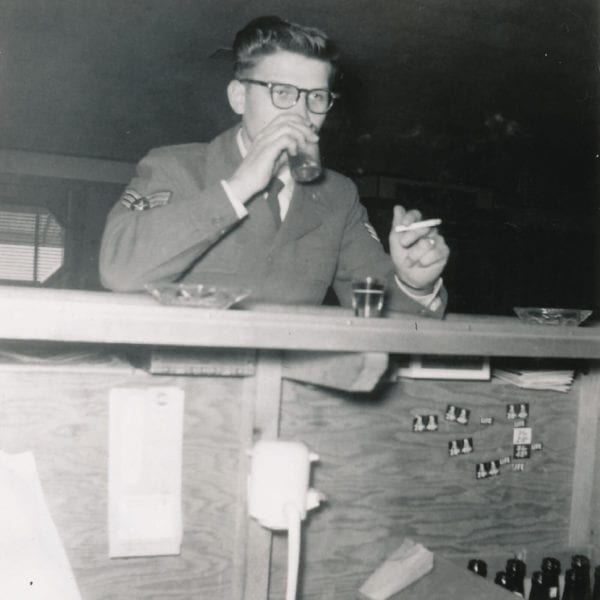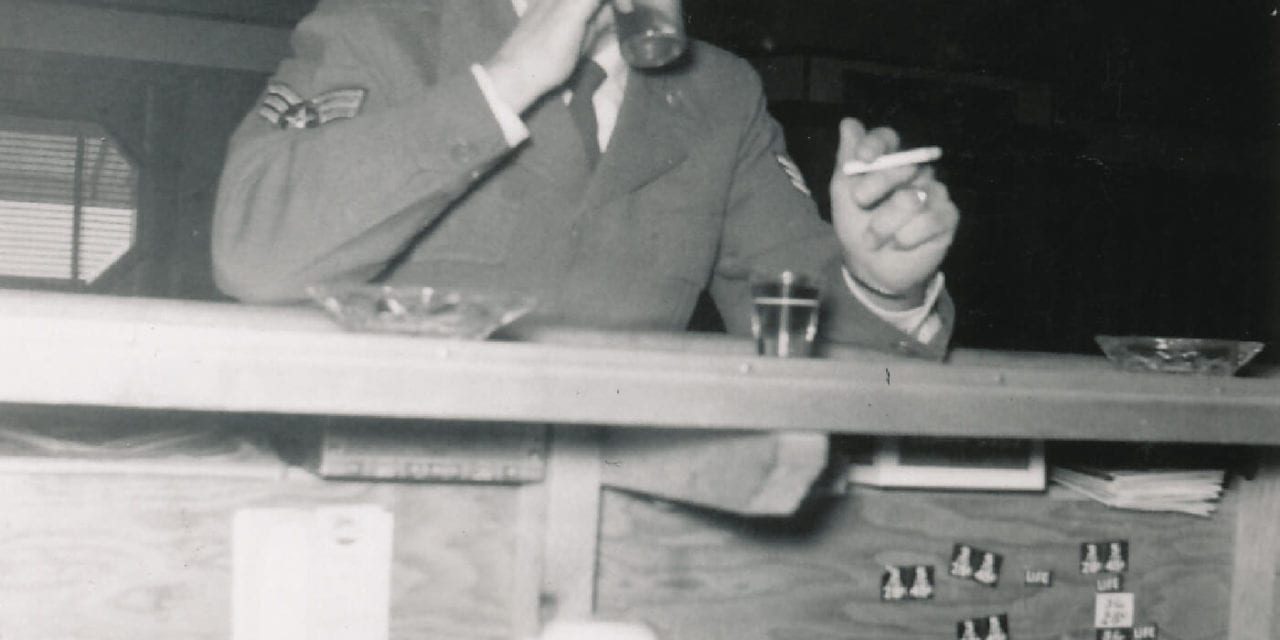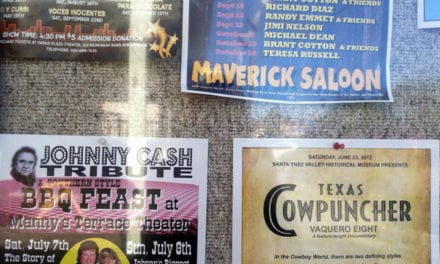There was a point during my Papa’s funeral mass when I thought I was going to lose it.
I was still shaking, literally vibrating in my seat with sheer adrenaline from having gotten up in front of the congregation to do a reading from the book of Ecclesiastes. I’d messed up and gone to the wrong podium, and the pianist had to whisper and point to another podium next to the altar. And I kept explaining myself to the whole church over and over in my head, like sorry dudes, nobody told me where to go, why do you need more than one podium up there anyway? And the priest had just spoken about how the white cloth my mother and her sisters had placed over the casket was a symbolic link to the white that my Papa had worn at his baptism, and how by virtue of his baptism he was now being welcomed into heaven. And I thought about how disappointing of a place heaven must seem for a man whose idea of church had been working in his toolshed and whose idea of religion had been a glass of Jim Beam and a pack of Winstons.
And I was turning the folded piece of paper I’d read from over in my hands and thinking about how my Papa would have been amused that my hastily-scrawled phonetic spelling of “Ecclesiastes” at the top of the page included the word “ass.” And the priest kept referring to him as “Alger” even though he went by Al; he only ever called himself Al. And the pianist had just launched into a tense rendition of Serdeczna Matko, clawing at the keys as if trying to subdue them while wailing off-key in Polish. And in the pew directly behind me my great aunt Bernice was dutifully singing along in a high, watery voice, enveloping me in a cloud of her halitosis with every deep breath. And I glanced down and for several disorienting seconds couldn’t make sense of why the spines of the hymnals read Breaking Bad but then I figured out they actually read “Breaking Bread,” and that was it. I thought I was going to fall out into the aisle laughing.
But I swallowed it down and clasped my hands hard in my lap to keep them still. Death is a serious affair and the last thing I needed was another reason to have to explain myself to people.
////////
I had a vague idea there might be an “open mic” during the prayer service at the funeral home, because they had one when my other grandmother died years ago. And I must have had a vague idea that I might get up and say something, because on the plane I’d typed a handful of half-formed ideas into my phone’s notepad. But the plane soon landed and I didn’t have time to put anything good together, and honestly, I didn’t think I’d be able to work up the nerve anyway.
Then the night of the prayer service came, and after a long, deeply silent lull following the first speaker, I found myself standing and walking to the front of the room with my stomach in my shoes. I gingerly rested my fingertips on the podium (thankfully there was only one here) and peered out at a sea of mostly strange faces. Haltingly, clumsily, I managed to share a couple of my memories before my face crumpled and I fled back to my seat.
If I could do it all over again I would say something more like this:
He rarely got mad or raised his voice, even when as a child I’d decided to play a game where I kept his cigarettes hidden from him for the majority of the day. When I got rowdy, he’d just raise his eyebrows and say in that measured way of his, “Kid, you’re gonna end up with your end up.” He kept all his promises even when he forgot, just like the time he returned home from town without the M&Ms I’d requested and he turned around and came back again an hour later with five bags to make up for it.
I will always remember him red and robust, a healthy paunch poking through his thin polo shirt, and the familiar outline of that box of Winstons tucked inside his chest pocket. He will always rub the backs of his gnarled hands slowly, asking you about your life; keeping you talking about yourself because he hated when the conversation turned to him. He will always putter around the kitchen humming tunelessly: “Bum, bum, bum, bum.” He will always grill steaks, inviting you to dig in and eat, inviting you to eat some more. He will always ask if he can top up your glass for you. He will always throw his head back in long, high staccato laugh — Ha! Ha! Ha! Ha! — as the ice in his Jim Beam tinkles. When he is tired of the talking and the noise in the house he will always disappear outside, distinguishable from the night only by the glowing orange dot of his cigarette, or he will disappear to a back room to keep silent company with a hard-riding shoot-em-up Western novel.
In my mind he will always be tenacious.

////////
He gave up smoking after the quintuple bypass, and switched from Jim Beam to the occasional glass of wine. He stopped working in the toolshed because being on his feet hurt too much. He did a lot less humming, a lot less laughing, and a lot more sitting in another room by himself. He lost his appetite. He got paler, thinner, and his polo shirts just hung off him.
There were a lot of things the nun said during the prayer service that I didn’t agree with. But she did say one thing that resonated with me: his body had become a burden to him, and he didn’t need it anymore. And I found that comforting. Because it framed his death as a choice. It framed his death with dignity.
During the wake it took me a long time to work up the nerve to go into the same room as the casket. When I finally did I was careful at first to keep my eyes on the flower arrangements, the guestbook, the ceiling, the chairs, anywhere else but my grandfather’s body.
And when I finally dared to look, I was almost relieved. He seemed familiar but not quite right; like a suggestion of himself. His hair was too thin, his face too smooth. His hands were folded unnaturally. “They did something weird with his mouth,” my cousin said, screwing up her own mouth dolefully.
It made it easier to see him like that, we agreed, when it wasn’t actually him at all.
////////
The night after the funeral, we all piled in at my grandmother’s house. “Your Nana is getting pijany,” my mother whispered to me. I already knew this since the second she’d taken my face in her hands and said I looked a lot like an Allen in the mouth and maybe a Sams around the eyes, because family genetics are her favorite topic of discussion when she is pijany. I don’t know what an Allen or a Sams looks like but I could take a guess anytime I look in the mirror. Sometimes I try to imagine an ever-dwindling handful of strangers who look a little bit like me, tucked away in tiny teetotaling Protestant towns across southern Indiana. But a long time ago my Nana married into a world of tiny hard-drinking Catholic towns dotting central Michigan, and here we all are.
She called out for another “toddy,” this time requesting a Manhattan by name, and I had to look up the recipe on my phone. There were no bitters in the booze cabinet above the built-in microwave but we’re a hardy people who have learned to do without. My aunt found a jar of maraschino cherries in the back of the fridge and the dot of red in the glass looked downright festive.
My mother said: “I’m glad she’s letting loose.” I was too. We both knew the hardest part for her was yet to come, when all of us repacked our suitcases and left her to an echoing, achingly empty home for the first time in 61 years of marriage.
////////
The day of the funeral was beautiful, blue and bright with a nice breeze just as my Papa had liked it. At graveside after the mass a bugler played Taps and as the last note sounded a line of snowy-haired men drew their rifles skyward and fired in unison, sending birds scattering from the trees. The color guard precisely, painstakingly folded the flag over the coffin into a neat triangle and presented it to my Nana. A man in a Cutlass Ciera stopped in the middle of the road to watch as the whole family leaned into each other and sobbed.
The priest said his final prayer and we slowly disentangled ourselves and dispersed in a daze. As I began to make my way to the parish hall, my aunt caught my elbow. “You know what he used to say about having to be buried here, right?” she asked, her smile coming through as a teary wince. I did, but I let her retell it so we could both hear it again:
My grandparents’ burial plots are next to an access lane at the rear of the church cemetery. Papa’s favorite punchline about this location was that it was too easy for his enemies to drive straight in and take a piss on his grave.
We gripped each other and cackled in appreciation. It was just like him to leave us with a joke.
My grandfather died in mid-September, and it took me a month to figure out how I wanted to write about it because of course it did.




I am so sorry for your loss. This is a beautiful post.
I bloody love your writing. I am sorry for the loss of your grandfather. He sounds like how a grandfather should be and this is a beautiful remembrance.
Lyn, this is absolutely beautiful. <3
I’ve had dreams with my grandmother in them ever since she died, 14 years ago now. It always feels as though she is visiting me. Last night for the first time since he died (3 years ago) I dreamt about my grandfather. I don’t remember knowing that he was dead in the dream, but I gave him the biggest hug that seemed to go on forever, I remember wondering why I was hugging him for so long, but still not letting go. I miss him so much. There was never any funeral, as my family is too awkward & nonreligious for funerals. I’m so sorry for your loss. Death is bullshit for the living.
Oh, Lauren. This is the best.
It took me 3 months to figure out what to write about my Uncle. I had to sift through every memory. I was completely depleted after I wrote it. It helps though, to get the right words down. They never seem to get the mouth right. Maybe they do it on purpose because it is comforting when you finally look and realize, “they aren’t there, that’s not my person anymore”.
I’m very sorry for your loss Lyn.
What a beautiful tribute to your Papa. I’m so sorry for your loss. <3
This is a beautiful piece, Lyn. I’m so sorry for your loss xx
Lyn, I am so sorry for all the loss you had in 2014…